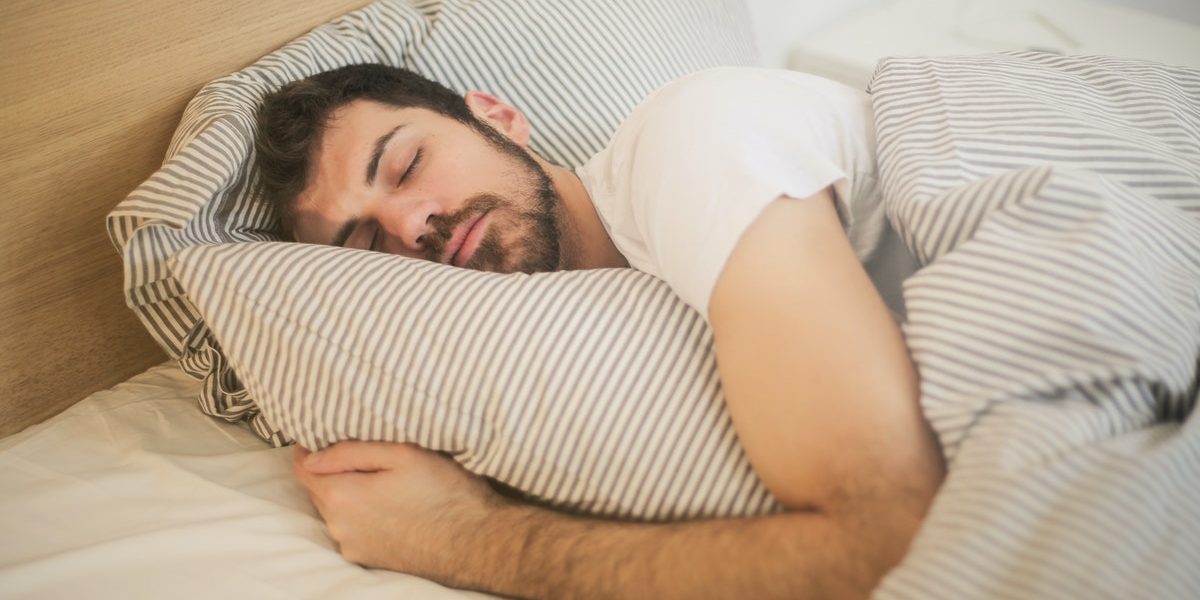The human body requires time to recuperate and heal itself. It’s crucial for growth; without proper rest, the body will continue to break down. The best way to let your body recover is by getting enough sleep.
How Does Sleep Work?
Sleep is a naturally occurring state of rest that allows the body to heal and repair itself. The average person needs seven to eight hours of sleep per night, but some people may need more or less depending on their age, lifestyle, and health.
During sleep, cells in your body repair damaged DNA, rebuild proteins, and clear out toxins. Your brain also uses this time to consolidate memories and process information from the day.
There are two types of sleep: REM (rapid eye movement) and non-REM. REM sleep is when you dream, making up 20-25% of your total sleep time. Non-REM sleep is divided into three stages: light sleep, deep sleep, and ultra-deep sleep. Light sleep makes up 50-60% of your total sleep time, deep sleep 20-25%, and ultra-deep sleep 1-2%.
Sleep is crucial in maintaining a healthy mind and body, but it’s also essential to get quality sleep. This means sleeping at the right time and waking up feeling rested and refreshed. Here are some ways you can improve the sleep you need.
Balance Your Hormones
Hormones play a huge role in people’s sleep. For example, cortisol is a stress hormone that can make it difficult to fall asleep and stay asleep. While melatonin is a hormone that helps regulate your sleep-wake cycle.
Melatonin is a hormone produced by the brain’s pineal gland. It is responsible for regulating the body’s sleep-wake cycle. When it’s dark outside, melatonin levels increase in the body and make you feel sleepy. When it’s light out, melatonin levels decrease, and you feel more alert. If you want to increase your melatonin, you can do so by taking supplements. You can find melatonin supplements at most health food stores. Start with a low dose (3 mg) and increase it gradually until the perfect dose for you.
Melatonin supplements are your best bet for improving your sleep if you have trouble sleeping due to jet lag or shift work.
Get Some Exercise
Exercise is not only good for your physical health, but it can also improve your sleep. Studies have shown that people who exercise regularly sleep better than those who don’t. Exercise helps to improve sleep quality by increasing the amount of time spent in deep sleep. It also helps reduce stress and anxiety, making it difficult to fall asleep.

The best time to exercise is in the morning or afternoon. Avoid exercising too close to bedtime as it can make it difficult to fall asleep.
Stick to a Sleep Schedule
Having a regular sleep schedule is one of the most important things you can do for your sleep. This means going to bed and waking up simultaneously every day, even on weekends. It will train your body to sleep better and help you feel more rested during the day.
Make sure your bedroom is dark, quiet, and relaxed. These are all ideal conditions for sleeping. If you can’t control the noise or light, try using earplugs or an eye mask.
Wind down before bedtime by reading or taking a relaxing bath. This will help your body and mind relax so you can fall asleep more easily. Additionally, it can help to avoid watching TV or using your computer or phone in bed. The light from these screens can disrupt your sleep.
Limit Caffeine and Alcohol
Caffeine and alcohol are two of the most common culprits concerning sleep problems. Caffeine is a stimulant that can make it difficult to fall asleep and stay asleep. It’s best to avoid caffeine in the evening, but if you must have it, try to limit it to one cup of coffee or tea.
Alcohol may help you fall asleep, but it prevents you from getting deep sleep. This means you’ll wake up feeling groggy and unrested. So it’s best to avoid alcohol before bed.
If you can’t sleep, don’t lie in bed awake. Instead, get up and do something else until you feel sleepy. This could be reading, taking a bath, or writing in your journal. You should stop watching television or working on the computer as the light from these screens can make it difficult to fall asleep.
Sleep is crucial for maintaining a healthy mind and body, but it’s also essential to get quality sleep. By following the tips above, you can improve the sleep you need to feel your best.

